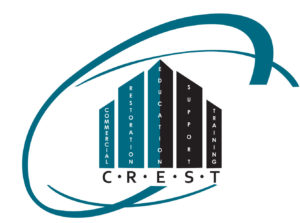[vc_row][vc_column][vc_column_text]
Sell More With Empathy 4 minute read
Bill Clinton, at a campaign rally years ago (1992) said to the crowd “I feel your pain!” The crowd loved it. Why? He was telling them that he is one of them.  No one likes aloof or arrogant. By Clinton saying he felt their pain, they believed Clinton understood them and would be better at solving their pains. If you don’t show empathy – it says you don’t care.
No one likes aloof or arrogant. By Clinton saying he felt their pain, they believed Clinton understood them and would be better at solving their pains. If you don’t show empathy – it says you don’t care.
Every prospect and every client experiences “pain” either personally or in their business. Certainly, we rarely would be involved in their personal life, but as a contractor or vendor, we are involved in their business life and those related pains.
The most effective way to broach the subject (of pain) with a client is to know – in advance – what their likely issues, pains, headaches are in their business or industry. For example, most every hotel has the pain of lost revenue when rooms are damaged by water and can’t be rented. Those hotels know an unoccupied room brings in zero revenue and they can’t get that lost money back!
A nursing home understands that when residents must be moved out (even temporary) they are losing money on that room and it won’t be recovered. Likewise, a vertical industry such as a daycare (childcare service) with 30 kids will lose money if the daycare is not able to open even for a few days. They can’t collect payment from the parents if the kids can’t stay there. (30 children x $100/wk = $3,000 in LOST income).
I am asked often by my clients… “how can my Sales Estimator close more jobs?” Regardless of who you send to a disaster to view it, estimate it, sell it; the client needs to know that the Estimator truly “Feels Their Pain!”
I’ve listed below several concepts or suggestions on ways to show empathy:
- Acknowledge their pain

- Share how you feel (about their pain)
- Be encouraging and supportive
- Show real interest in their circumstances
- Put yourself in their situation
The above listed points will help you sell more with empathy. These are ways to show your sincerity and interest in the other person and their issue. The biggest challenge is for you to get in tune with the surroundings, complications, and the frustrations the client is experiencing – and find ways to put yourself in their shoes.
A very common mistake we make quite often is saying the wrong thing! Here are some examples of what NOT to say:
- Everything happens for a reason
- Just look on the bright side…

- I know how you feel
- This could be a blessing in disguise
- We see this all the time – it’s not a big deal to us
- Now you have a great reason to remodel.
Although these common sayings seem to be reaching out and telling them you have empathy, they are minimizing the other persons’ pain and don’t show them we are “connecting” with them. Essentially, these phrases are well worn, overused, and inappropriate clichés.
Imagine this scenario: you are called to a flooded home, there is two feet of water in their basement. As a drying company, we are focused on getting the water removed and the home dry. The client may be less concerned with the two feet of water, and far more worried about the wedding or grandkids photo albums that are floating in that water. Their pain isn’t the water – it’s the hurt of losing important photographs.
Empathy is “wading into the water, collecting the photo albums, and suggesting ways to recover the pictures!”
Remember, telling them to “rub some dirt on it” won’t provide the empathy they want from you!


By Dick Wagner, Co-Founder The CREST Network, LLC
Owner of AskDickWagner.com blog
Copyright© 2020 All Rights Reserved The CREST Network, LLC
[/vc_column_text][/vc_column][/vc_row]
